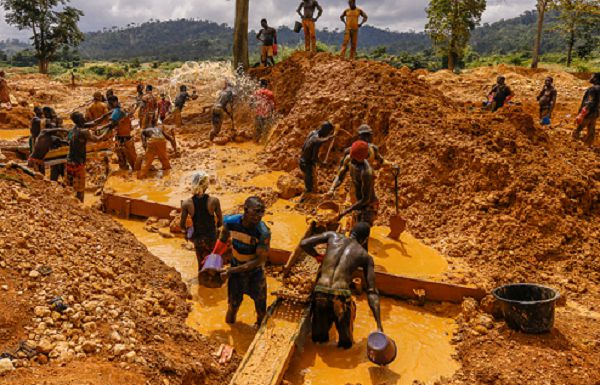
We should be more responsible
The government has lifted the ban on small-scale mining operations that have, for several years, been a major cause of most of the negative environmental impacts in most mining communities.
The environmental effects of small-scale mining activities are grave because most of the activities are not coordinated and monitored by the authorities.
The methods of mining applied by miners determine the severity of the threat to environmental security.
The chemical method of processing gold is, for instance, a severe health hazard, especially the amalgamation with mercury and heap leaching.
Small-scale mining activities also have a lot of negative impacts on agricultural activities, the major occupation of and source of livelihood for the people.
It is from this background that we cautiously welcome the lifting of the ban on small-scale mining companies that have been successfully vetted and their concessions validated by the Inter-Ministerial Committee on Illegal Mining (IMCIM), after almost two years of painstaking efforts to streamline activities in the small-scale mining sector.
We also note that the moratorium still remains in place for small-scale mining companies that are yet to go through the validation process by the committee.
As small-scale mining operators begin work, we caution that we must not go back to our old ways by ensuring that all measures that had been put in place to check illegal mining activities are still in force to weed out miscreants from the system.
We are cautious because improper mining has caused the environment a great deal of harm, the commonest being the pollution of water resources, depletion of forests and degradation of arable land.
The living standards of residents in affected areas are adversely affected, resulting in further perpetuation of poverty.
According to the Ghana Living Standards Survey (GLSS) Report 2008, more than 40 per cent of Ghanaians in rural, urban and peri-urban centres, especially children, died each year from diseases associated with unsafe water, inadequate sanitation and poor hygiene.
It said on the average women and children walked a distance of six kilometres each day carrying 20 litres of water.
This situation has arisen as a result of artisanal mining which uses large volumes of fresh water for processing and which discharges mine sewage into water bodies.
For us at the Daily Graphic, the issuance of licences and permits for surface mining should be reduced and the operators encouraged to explore the underground mining method with appropriate techniques and skills that meet international best practices.
The municipal and district assemblies should also enforce environmentally friendly bye-laws, while comprehensive environmental protection measures should be adopted to safeguard the environment.
We also think that in applying for licences to establish small-scale mining businesses, applicants should be made to attach environmental action plans to their applications before they are considered.
It is also important that sites where licensed small-scale miners operate be inspected officially for purposes of environmental management accreditation before applicants’ licences are renewed if the report is positive.
It is our expectation that once the environmental challenges of small-scale mining are addressed, we will have small-scale mining companies that are environmentally friendly and economically sustainable to prevent the situation where we will go back to our old ways of small-scale mining.
